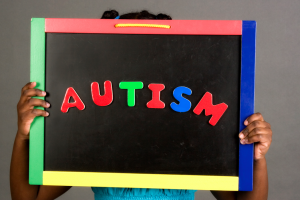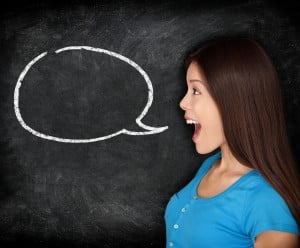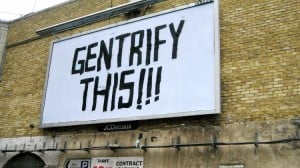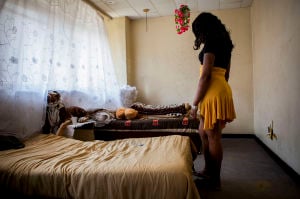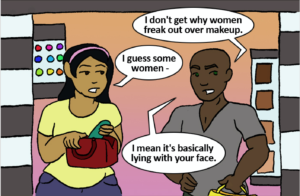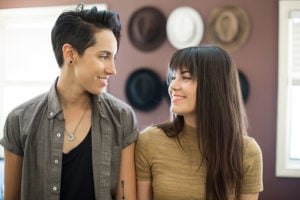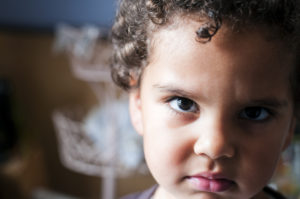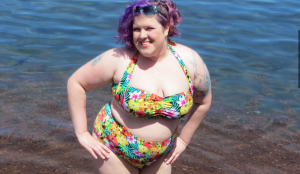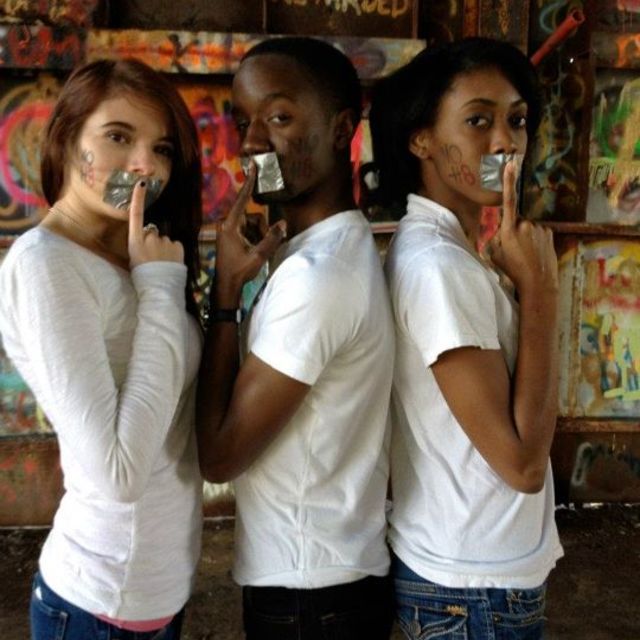
Credit: NoH8 Campaign
As a minority group that regularly battles prejudice, violence, and ignorance from governments, hate groups, and the like, LGBTQIA+ people know what it’s like to be discriminated against.
That’s why the queer community tends to pride itself on being anti-discriminatory and accepting of people from all walks of life.
Unfortunately, the LGBTQIA+ community is not devoid of casual racism. Even though, in theory, people should know better, certain forms of racism in the LGBTQ community have become so normalized that they get brushed off as minor.
Before I go on, let me define the kind of racism I’m talking about to avoid confusion. Racism, in an institutional sense, is race-based discrimination from a position of power or privilege.
This means that a gay person with white privilege can be racist toward gay people of color and people of color in general.
I’m not talking about mustache twirling, KKK-grade, Hitler level racism that’s so obvious anyone with any sense of human decency would banish it from their mind.
I’m talking about the “little” things, like the fetishization of Black men by gay white men, the stigmatization of Asian men by gay men of other races, mainstream LGBTQ campaigns with little racial awareness, and racial “preferences” that can be innocuous, but at times reflect an underlying prejudice.
As normalized as they are, they suck for LGBTQIA+ people of color who are not well represented in either their own racial communities or the mainstream LGBTQ community.
The lack of acceptance from either group puts a strain on how safe LGBTQIA+ people of color feel in a lot of the spaces they occupy.
So if you’re a white and LGBTQ and you want to make sure that LGBTQIA+ spaces are as safe and inclusive for everyone as possible, here are some steps you can take to support people of color and be more racially aware.
1. Be Aware of Intersectionality
Be aware that your experience of being LGBTQIA+ and white is not representative of being lesbian and Asian or gay and latin@, or queer and Black.
Awareness of intersectionality means recognizing that LGBTQIA+ people of color can be discriminated against not as people of color or as LGBTQIA+ people, but as both simultaneously.
For example, if you’re a gay white woman and you’re already aware of how your gender and sexuality intersect, remember that race is yet another intersection, and not a negligible one. In most cases race is highly visible, apparent from birth, and connected to cultural identity and family affiliation.
2. Don’t Think That Being LGBTQIA+ Lets You Off the Hook for Being Racist
Keeping intersectionality in mind, understand that just because you’ve faced discrimination doesn’t mean you understand every form of discrimination or are immune from being discriminatory yourself.
We all have some form of privilege, and acknowledging your privilege when it comes to race means acknowledging the unconscious ways in which you can also be racist.
In the past, when I called out someone (who happened to be gay) for being racially oblivious, his response was that, as a gay person, he can understand what it’s like to be discriminated against for being Black.
Here’s why I disagree with a statement like that: if a person who has directly experienced racism is telling you that you’re being racially oblivious and you dismiss everything they say because “I’ve been discriminated against too,” you’re devaluing the experiences of people of color just as much as the institutions that continue to exclude them.
When LGBTQIA+people of color call out other people in the community for being racist, they don’t want you to tear your clothes apart and fall to your knees weeping with white guilt.
What they want you to do is check yourself, listen to what they have to say, and be more aware of experiences besides your own.
Seeing casual racism in the LGBTQIA+ community isn’t about demonizing white people or making people paranoid about causing offense.
It’s about making sure we’re all self-aware enough to check our cultural blind spots and truly listen to and value other people’s experiences.
3. Know Casual Racism When You See It
What does casual racism look like in LGBTQIA+ spaces? A lot like casual racism everywhere else.
Casual racism thinks mixed race people are “exotic,” penis size is determined by race according to “some studies” that probably don’t exist, Black women are aggressive, and just about every other common racial stereotype under the sun.
Really, stereotypes fuel casual racism in all its forms.
Casual racism also thinks that LGBTQIA+ people have transcended all responsibility for dealing with racial issues.
For example, if you’re a queer person of color who wants to vocalize a racial concern in a predominantly white queer space and casual racism rears its head, you could be accused of being divisive (extra irony points if you were pointing out divisiveness that actually exists).
Sometimes casual racism masquerades as inclusion or open mindedness. For example, there are some gay people who go out of their way to date someone of another race just to say they’ve done it.
Such gays then receive the Congratulatory Cookie of Open Mindedness from people of color for letting us sleep with them.
But not really, because dating someone because of their race is as ridiculous as rejecting someone because of their race.
The same applies to predominately white gay groups that go out of their way to snag token people of color (oblivious to the fact that these spaces don’t always feel inclusive to the people of color in question).
Tokenism may seem progressive on its surface, but it’s really just another form of othering.
So if you see casual racism, remember it. And talk about it.
Notice if you’re ever guilty of it and, if you are, take responsibility for it.
I would say explain it to other white LGBTQIA+ people, but it’s frustrating when it takes a white person saying the same thing people of color have been saying for ages to convince other white people to change their actions.
Instead, tell them to take the race related concerns of LGBTQIA+people of color seriously – as in listen to us.
As LGBTQIA+ people, we get silenced all the time, told we’re too sensitive, told not to flaunt our sexuality.
Sexual minorities of color can find themselves silenced further when their concerns about race are dismissed by the predominantly white, mainstream LGBTQ community.
Let’s keep working to change that.
[do_widget id=”text-101″]
Jarune Uwujaren is a Contributing Writer for Everyday Feminism. A Nigerian-American recent graduate who’s stumbling towards a career in writing, Jarune can currently be found drifting around the DC metro area with a phone or a laptop nearby. When not writing for fun or profit, Jarune enjoys food, fresh air, good books, drawing, poetry, and sci-fi. Read their articles here.
Search our 3000+ articles!
Read our articles about:
Our online racial justice training
Used by hundreds of universities, non-profits, and businesses.
Click to learn more
Most Read Articles
- « Previous
- 1
- …
- 30
- 31
- 32






